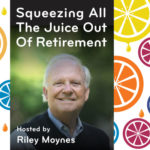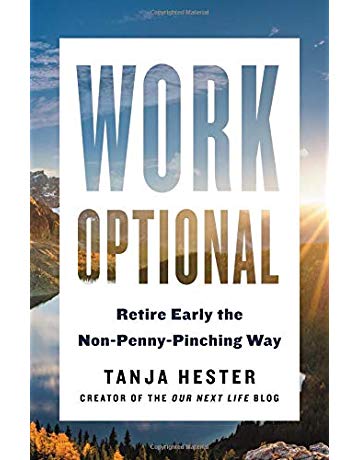 Earlier this week, financial planner and author Riley Moynes featured me on his weekly podcast, Squeezing All the Juice out of Retirement. You can find the 24-minute interview here, using any number of podcasting platforms.
Earlier this week, financial planner and author Riley Moynes featured me on his weekly podcast, Squeezing All the Juice out of Retirement. You can find the 24-minute interview here, using any number of podcasting platforms.
I have written about Moynes’ books in the past (such as The Four Phases of Retirement) as well as his son Chris Moyne’s book about the Retirement of pro athletes: After the Game.
While both those books come up in the podcast, Riley Moynes starts by asking me about why I coined the term Findependence instead of using the more traditional term Retirement.
Most readers of the Hub will by now be familiar with this topic. In fact, one of the first blogs we published when we launched the site in November 2014 was this one on “Which is the better goal: Findependence or Retirement?”
However, for the sake of more recent subscribers, I’ll recap that Findependence is merely a contraction for Financial Independence. And Findependence Day is the day you estimate you will reach your Findependence. All this is explained in the Hub’s sister site and processor, FindependenceDay.com. There you can purchase the Canadian edition of Findependence Day or find a link to the Trafford site to buy the U.S. edition. (The book is a financial novel.) There is also a button at the top right of this site that will take you to the site.
Moynes elicits a fair bit of my recent history since leaving full-time employment in 2014. As i said, I was working from home long before the Covid-19 crisis hit! What is different — and is also discussed in the podcast — is that a year ago, my wife also left her full-time job in the transportation industry, so we’re experiencing the joys and challenges of Findependence together, albeit aided by two well-equipped home offices.
The 4-hour workday
Another topic that we spent some time during the podcast is the concept of the four-hour day. I used to write about this back in my days at the Financial Post, and it also comes up in the book I co-authored with Mike Drak: Victory Lap Retirement. The 4-hour day concept was brought to my attention by a former employer and friend: published in 1955 by William J. Reilly it was titled “How to make your living in Four Hours a Day Without Feeling Guilty About It.” (not to be confused with the more recent Tim Ferris book, The 4-Hour Workweek). Continue Reading…





